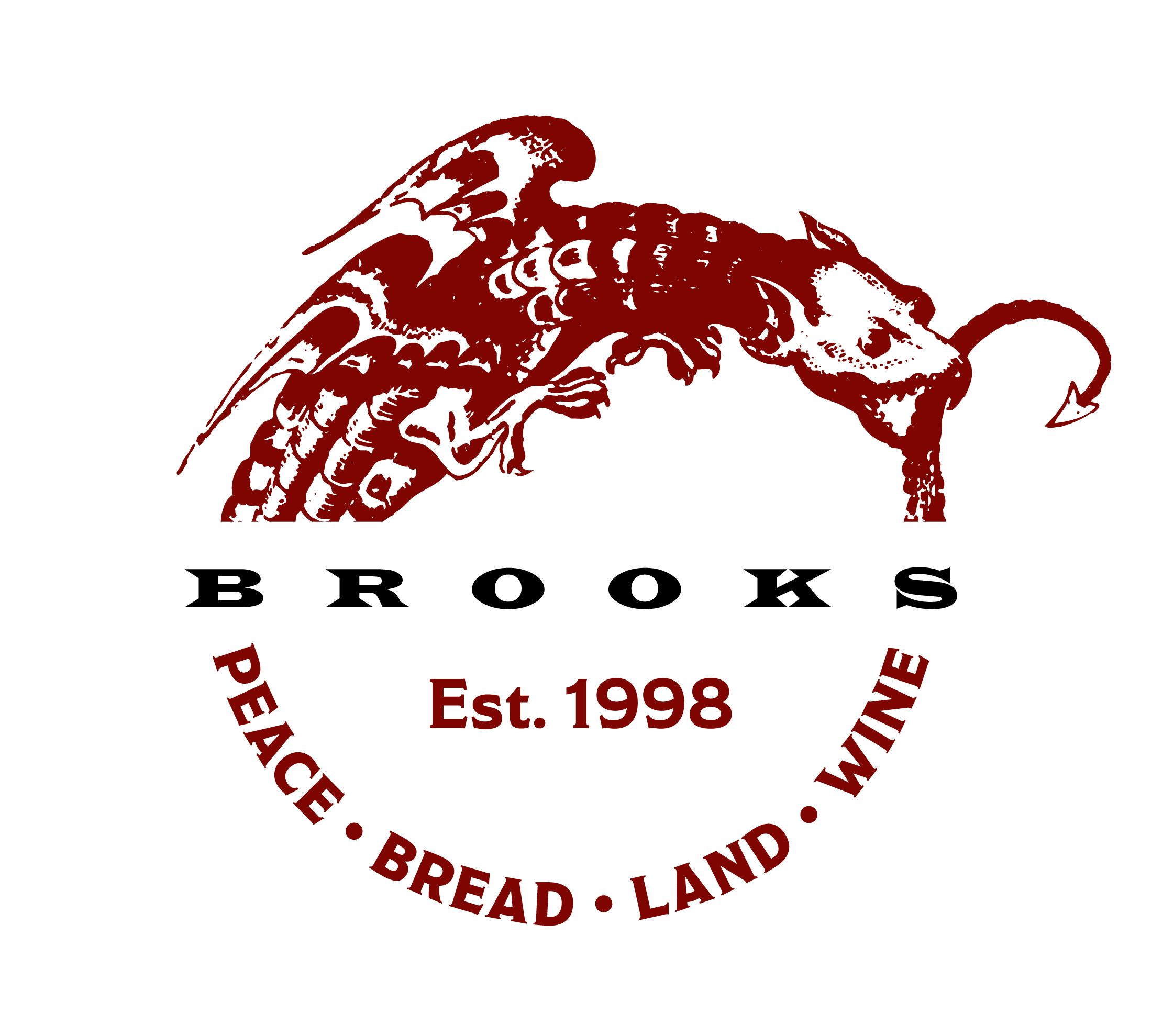

The Morne Wine Company dba Brooks Wines

Oregon, United States
January 2019
Growing perennial crops
Agriculture/Growers
United States
Peace. Bread. Land. Wine.........Riesling, Aromatic Whites and Pinot Noir.............Approachable Wines At Accessible Price Points.......Willamette Valley, Oregon Brooks is the living legacy of Jimi Brooks, a visionary Portland native who came to wine through his passion for history and philosophy. Brooks began in 1998. While Jimi is no longer with us, his strong commitment to biodynamic farming, his gentle approach to winemaking and his excitement for the Willamette Valley terroir live on through their Pinot Noir, Rieslings and Aromatic Whites. Jimi's son Pascal Brooks is the sole owner of the winery; Jimi's sister Janie Brooks Heuck has volunteered her time to lead it; and Jimi's longtime friend and winemaking accomplice, Chris Williams, continues to make Brooks' wines. Brooks produces 20,000 cases and sells through national distribution and direct to consumer.
Overall B Impact Score
Governance 16.0
Governance evaluates a company's overall mission, engagement around its social/environmental impact, ethics, and transparency. This section also evaluates the ability of a company to protect their mission and formally consider stakeholders in decision making through their corporate structure (e.g. benefit corporation) or corporate governing documents.
What is this? A company with an Impact Business Model is intentionally designed to create a specific positive outcome for one of its stakeholders - such as workers, community, environment, or customers.
Workers 14.2
Workers evaluates a company’s contributions to its employees’ financial security, health & safety, wellness, career development, and engagement & satisfaction. In addition, this section recognizes business models designed to benefit workers, such as companies that are at least 40% owned by non-executive employees and those that have workforce development programs to support individuals with barriers to employment.
Community 22.4
Community evaluates a company’s engagement with and impact on the communities in which it operates, hires from, and sources from. Topics include diversity, equity & inclusion, economic impact, civic engagement, charitable giving, and supply chain management. In addition, this section recognizes business models that are designed to address specific community-oriented problems, such as poverty alleviation through fair trade sourcing or distribution via microenterprises, producer cooperative models, locally focused economic development, and formal charitable giving commitments.
Environment 29.5
Environment evaluates a company’s overall environmental management practices as well as its impact on the air, climate, water, land, and biodiversity. This includes the direct impact of a company’s operations and, when applicable its supply chain and distribution channels. This section also recognizes companies with environmentally innovative production processes and those that sell products or services that have a positive environmental impact. Some examples might include products and services that create renewable energy, reduce consumption or waste, conserve land or wildlife, provide less toxic alternatives to the market, or educate people about environmental problems.
What is this? A company with an Impact Business Model is intentionally designed to create a specific positive outcome for one of its stakeholders - such as workers, community, environment, or customers.
Customers 2.8
Customers evaluates a company’s stewardship of its customers through the quality of its products and services, ethical marketing, data privacy and security, and feedback channels. In addition, this section recognizes products or services that are designed to address a particular social problem for or through its customers, such as health or educational products, arts & media products, serving underserved customers/clients, and services that improve the social impact of other businesses or organizations.